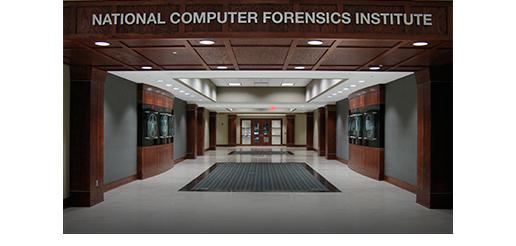Congressman Gary Palmer (AL-06) has introduced H.R. 7174, the NCFI Reauthorization Act, along with Congresswoman Elissa Slotkin (D-MI). This legislation reauthorizes the National Computer Forensics Institute (NCFI) for 10 years.
NCFI is a state-of-the-art institution in Hoover that operates as a joint effort between the U.S. Secret Service, Homeland Security and the state of Alabama to train law enforcement, prosecutors and judges.
“I am pleased that this bill will reauthorize NCFI for another 10 years and am proud to support its mission,” Palmer said. “It has proved a critical part of local and national efforts to prosecute criminals whose crimes would be difficult or impossible to prosecute without evidence from cell phones, computers and other electronic devices. It provides vital training to local law enforcement officers, prosecutors and judges and soon to vetted domestic and foreign task force officers.
“The partnerships built during the NCFI’s critical training empower the law enforcement community to hold accountable transnational criminal organizations that commit cyber intrusions, bank fraud, child exploitation, human trafficking and other computer-enabled crimes.”
The NCFI is a federally funded training center dedicated to instructing state and local officials in digital evidence and cybercrime investigations. It opened in 2008 with a mandate to provide state and local law enforcement, legal and judicial professionals a free, comprehensive education on current cybercrime trends, investigative methods and prosecutorial and judicial challenges.
Run by the United States Secret Service’s Criminal Investigative Division and the Alabama Office of Prosecution Services, the training model is based upon the Secret Service’s successful cyber investigative strategy, which relies on partnering with and sharing information between academia, private industry and the law enforcement/legal communities to combat the ever-evolving threat of cybercrime. The curriculum reflects current trends in the field and addresses potential technological obstacles as they are encountered in active investigations.
“This is an invaluable, hands-on program that brings together officers at the local, state and federal level, and Michiganders saw the benefits firsthand in the aftermath of the tragic shooting at Oxford High School last year,” Slotkin said. “We need to give law enforcement the tools and resources they need to be successful and ensuring NCFI can continue to serve its role through 2032 is an important part of that effort.”
Prior to 2008, training for state and local law enforcement in cybercrimes was difficult to find. Local departments could find occasional training slots in courses taught to federal agents or could acquire the skills and equipment at great cost to their respective agencies.
In 2007, the state of Alabama approached the Secret Service and the Department of Homeland Security with a proposal. The state agreed to provide the property and funds to construct a state-of-the-art facility if the federal government would fund the training and allow the Secret Service to operate it. An accord was struck between the Department of Homeland Security, the state of Alabama, the U.S. Secret Service, the Alabama District Attorneys Association and the City of Hoover.
“To date, the NCFI has trained more than 18,000 individuals from all 50 states and U.S. territories,” Palmer said. “The Sixth District of Alabama is proud to be the home of an organization so crucial to making our nation and world safer. I appreciate Rep. Slotkin’s partnership on this legislation and her efforts in guiding it through the reauthorization process. This is a bipartisan effort that benefits the whole nation.”










